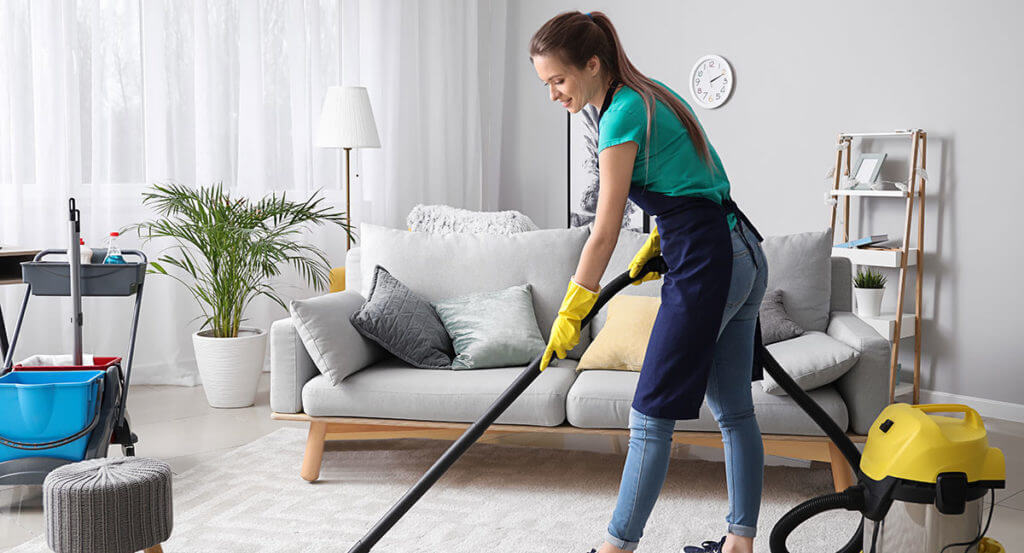Do you want to know what to do after heavy rains when it comes to mould? Heavy rains or constant heavy rain eventually start to negatively affect many levels. They can destroy your home, your belongings, and even your health.
But did you know that much rain or constant rain can also introduce mould to your house? After much rain, you might notice mould growing in your home or office. You don’t need to panic. Mould is quite common after much rain and can be eradicated by professionals.
Does mould always grow after much rain?
The short answer is yes. Mould spores are a common problem after heavy rains. They usually grow when the house has been rained for more than two days. Mould grows when moisture is present for an extended time. During much rain, water can leak into the walls of your home if high water levels have compromised them.
If the water leaks into your home for more than two days, you may see mould growing on interior surfaces such as walls and ceilings. If you notice mould growth in these areas, removing it immediately before it spreads further throughout your home is essential. Calling mould removal experts can help you remove the mould and prevent it from spreading.

What should you do after heavy rains?
Below are some tips on what to do after a much rain if you want to minimise or prevent mould from growing:
1. Check for mould on walls and ceilings before entering the house again
Mould can grow on almost any surface in your home, but it usually starts from a damp area that is dark and warm. However, they can also grow wood and paper products. Water gets into these areas when there’s much rain and creates the perfect conditions for mould growth.
When you return home after much rain, you must avoid breathing in mould spores. It can cause health problems for you and your family. You don’t want to get sick because of the much rain damage.
So, check for mould on walls and ceilings before entering the house again. To do this, you should contact a professional immediately. They are licensed and experienced and know what they are doing. They have the necessary equipment, and they can help you protect yourself from toxic mould.
Note that you should not remove mould yourself as it can release toxic spores into the air. It’s better to call a professional and let them handle it.
2. Open windows and doors to air out your home
Mould can grow in as little as 48 hours, so you want to ensure that you’re doing everything possible to keep any moisture out of your home. You’ll want to let the air flow through it and dry out all the surfaces where water may have been sitting.
Opening all the windows and doors will help eliminate any excess moisture in your home before it gets a chance to cause damage. This will also help ventilate the air and remove any lingering odours from much rainwater.
After you’ve opened all your windows and doors, you must call mould removal experts to check your home for any current or potential mould problems. Luckily, The Mould Group removes mould from your home and removes odours that the mould might have caused. You can contact them to find out how they can help.
3. Clean and disinfect all surfaces
Hot water and other cleaning products you can buy in the supermarkets may help to kill off any bacteria that may be present on surfaces that have been exposed to much rainwater. However, this will not guarantee that all the spores have been killed. Worse scenario, you may just end up spreading the mould spores around.
If you want to remove mould effectively. You should call the best mould removal company, like The Mould group. They can remove mould from your home quickly, efficiently and safely. In reality, off the shelf products or DIY methods may not be effective against the mould.
It may not remove the mould entirely. It could even spread the mould more around your home. The only way to kill them properly is by using a fogging machine or what is known as non-mechanical air scrubbing. Hiring professional mould removal like us to have this equipment and the experience to get the job done correctly.
4. Remove and discard any materials that much rainwaters have contaminated
There are different types of mould, but you must remove it no matter what type you have. Basically, it’s essential to remove any materials that much rainwater has contaminated is essential. This includes carpets, bedding, furniture, and drywall that may have been exposed to water for a long time. As we mentioned, mould loves damp environments. So if there’s any chance that the material you’re throwing out was exposed to much rainwater. It should go straight into the trash.
The longer these items are in your home, the more likely they will become a breeding ground for mould spores. Primarily, The Mould Group offer content restoration services. If you have essential items or things you don’t want to throw out, they can help restore them to their former glory.
5. Use fans to circulate air to dry out your home as quickly as possible
Specifically, mould can enter your home in several different ways. The most common is through open windows, doorways, air conditioning or heat systems. Additionally, when rainwater gets trapped in an area where it doesn’t have enough ventilation, it can start to grow mould. This is why getting your home dried out as quickly as possible is essential.
You can use fans to help air circulate through your home. The more air circulates through a room, the faster it dries. It also helps dry carpeting and other materials that might have gotten wet during the rain.
If you’ve been affected by much rain, cleaning up the water as soon as possible is essential or better, call a professional mould removal company. So, it doesn’t sit for long periods, which could lead to mould growth later on down the line.
6. Use protective clothing or gloves when trying to clean the house
Cleaning up after heavy rains is a task that can be daunting, but it’s crucial to get started. Moreover, wearing gloves will protect your hands from chemicals and sharp objects on your property after the rainwaters recede.
On the other hand, if you are concerned about mould spores. You should call mould removal professionals to ensure your home is safe and free of mould. You don’t want to be exposed to mould spores and other contaminants that can cause health problems.
7. Remove all porous materials
Porous materials like drywall, sponges, and other paper or wood products are particularly vulnerable to mould growth. If you don’t remove these materials, they can become a breeding ground for mould spores. Which will spread throughout your home and cause damage that can be costly to repair.
In addition to removing these materials, you’ll need to dispose of them in a way that doesn’t put others at risk for exposure. If they are wet or have dried out but aren’t salvageable (for example, mouldy carpet). You’ll want to toss them in the trash bin.
8. Call professionals for mould removal
Lastly, call the experts if you are worried about mould spores. This is especially true if the rain was recent and there was water damage to your home. But even if it’s been a few weeks, you must still call the experts. If you can’t see it, that doesn’t mean it isn’t there.
Moulds are usually harmless, but some can cause allergic reactions, asthma and other respiratory problems. When the spores are disturbed, they can be released into the air and inhaled. If you don’t have a professional clean up your home and remove the moulds, you could risk serious health problems.
However, even if it doesn’t cause health problems, mould is unsightly and can lead to a lower sale price when you go to sell. Hiring professionals can make all the difference if you don’t feel up to handling this yourself. They have the suitable materials and equipment to safely remove mould from your walls, ceilings and floors without damaging anything else.

Should I check for mould in my home after much rain?
Yes, you should check for mould in your home after it rains. Mould is a fungus that can grow on wet surfaces and sometimes cause health problems. Especially for people with asthma or allergies. Mould spores are microscopic and spread by becoming airborne. If you have mould in your home, it’s best to remove it as soon as possible, as the problem will not improve. It will get worse. Generally, after much rain, then warm weather mould spores can burst to life after much rain.
The Mould Group is a professional company that can check and remove mould. Having the latest modern equipment to detect and treat mould. They use infrared cameras to detect moisture levels in your house’s walls and moisture metres to check for mould. They will also provide you with a report showing the humidity levels in your home. Contact them today if you are looking for a professional mould removal company.

